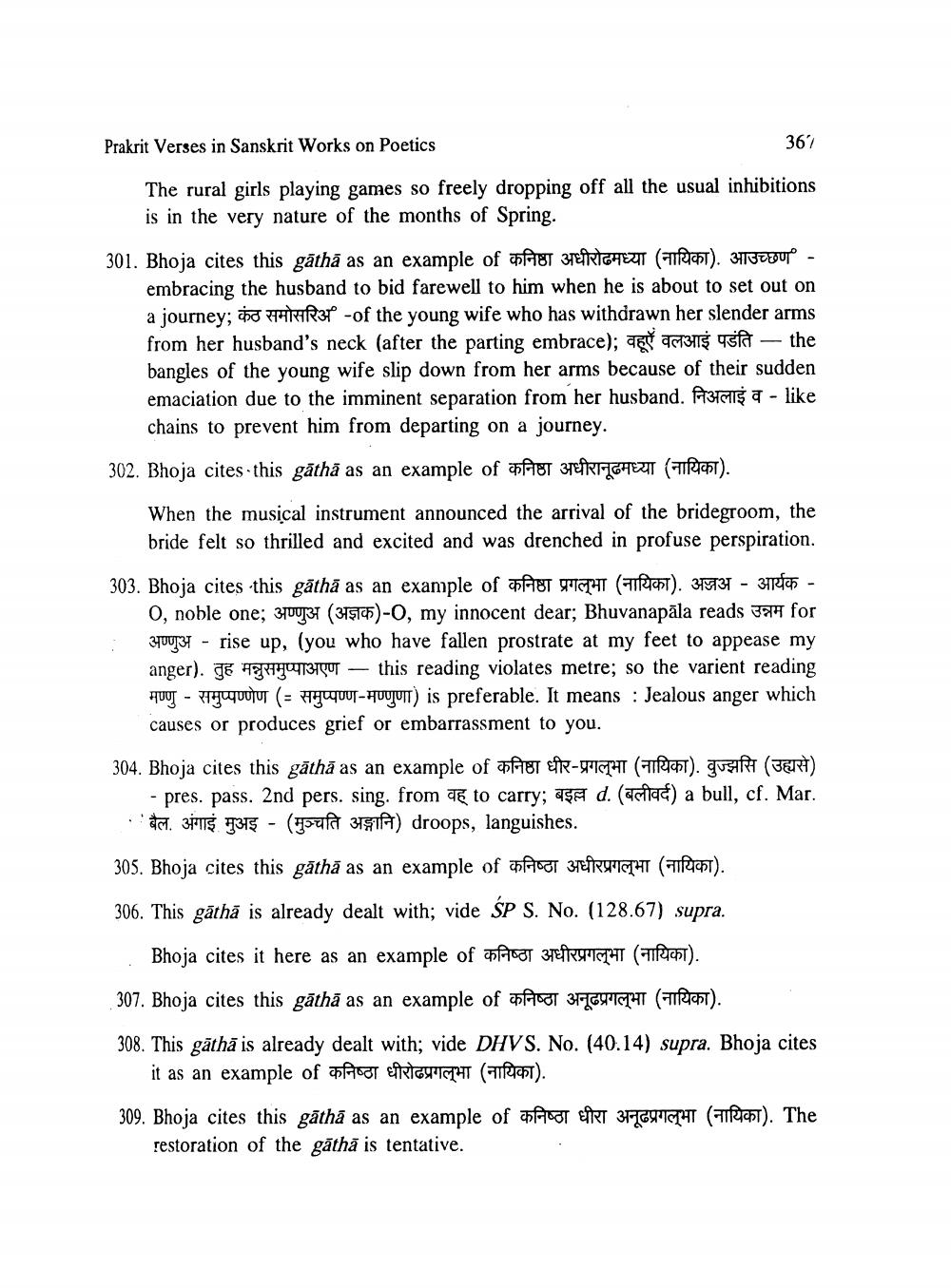________________
Prakrit Verses in Sanskrit Works on Poetics
361
The rural girls playing games so freely dropping off all the usual inhibitions is in the very nature of the months of Spring.
301. Bhoja cites this gāthā as an example of abf8T 3TERRIGHEZIT (Facht). 31T3TEBUT -
embracing the husband to bid farewell to him when he is about to set out on a journey; do R3T -of the young wife who has withdrawn her slender arms from her husband's neck (after the parting embrace); TEF 787315 usta — the bangles of the young wife slip down from her arms because of their sudden emaciation due to the imminent separation from her husband. 2376 - like chains to prevent him from departing on a journey.
302. Bhoja cites this gātha as an example of
8T BERTIGHEZT (TIRUCHT).
When the musical instrument announced the arrival of the bridegroom, the bride felt so thrilled and excited and was drenched in profuse perspiration.
303. Bhoja cites this gāthā as an example of 8 THT (FIT). 379737 - 377705 -
O, noble one; 3tvu 34 (315105)-0, my innocent dear; Bhuvanapāla reads 3514 for 3400 37 - rise up, (you who have fallen prostrate at my feet to appease my anger). JE HET1376UT — this reading violates metre; so the varient reading HUUJ - Equutut (= Hyuqour - HUUJUTT) is preferable. It means : Jealous anger which causes or produces grief or embarrassment to you.
304. Bhoja cites this gāthā as an example of af8T ER-YICHT (FTI ). quift (ERT)
- pres. pass. 2nd pers. sing. from 16 to carry; F d. (aria) a bull, cf. Mar. t. 315 315 - (pufa 351A) droops, languishes.
305. Bhoja cites this gāthā as an example of tot 3TERYITHT (1997).
306. This gātha is already dealt with; vide ŚP S. No. (128.67) supra.
Bhoja cites it here as an example of ACT 3TERY ISTAT (TIC).
307. Bhoja cites this gāthā as an example of affOT 31464"ICTAT (TRAAT).
308. This gāthā is already dealt with; vide DHVS. No. (40.14) supra. Bhoja cites it as an example of hoor EIRIGYITHT (
F T).
309. Bhoja cites this gāthā as an example of foot ERT 3764'ITAT (TIRUCHT). The
restoration of the găthā is tentative.




